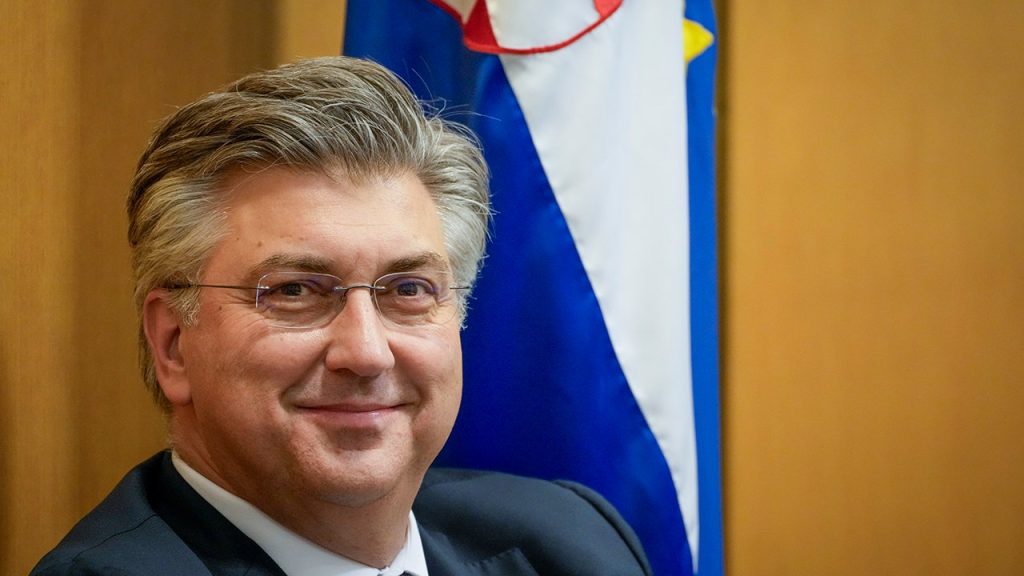Croatian lawmakers recently voted in a new government that leans to the right, dominated by the conservative Croatian Democratic Union (HDZ) but also including the hard-right Homeland Movement party, which emerged as a kingmaker after an inconclusive parliamentary election. Prime Minister Andrej Plenkovic, starting his third consecutive term, secured approval for his new Cabinet in a 79-61 vote in the 151-member Sabor. This slim majority could lead to political instability after years of HDZ dominance. Plenkovic emphasized the government’s focus on economic growth and modernization, as Croatia’s economy has improved since joining the EU in 2013 and entering the single currency market last year, relying heavily on tourism.
The new government does not include a party representing Croatia’s ethnic Serb minority for the first time in years, creating concerns about disrupting the country’s ethnic balance following the Serb-Croatian war from 1991 to 1995. Plenkovic reassured the protection of rights for national minorities, but there are already signs of radicalization according to former government minister Anja Šimpraga and liberal lawmaker Sandra Bencic. The Homeland Movement party, made up of radical nationalists and social conservatives, has demanded the abolition of financing for the liberal news outlet Novosti, which is funded by the Serb minority. Novosti journalists have reportedly received threats and been labeled as enemies of the state, prompting concern from the Croatian Journalists’ Association.
With Croatia’s predominantly Catholic and conservative society, the Homeland Movement has also advocated for a return to traditional roles for women, sparking further controversy. HDZ has been a dominant force in Croatian politics since gaining independence, with the country becoming an EU member in 2013 and joining the eurozone last year. The rise of hard-right and populist parties in EU governments has the potential to make gains in the upcoming European Parliament election, amid ongoing challenges such as the war in Ukraine, climate emergencies, and migration issues. As Croatia takes a right-leaning turn in its new government, the impact on social issues and the country’s place within the EU remains to be seen.
Overall, the new Croatian government marks a shift to the right, with the HDZ and Homeland Movement leading the coalition. The composition of the Cabinet aligns with a trend of hard-right and populist parties gaining influence across the EU, particularly in the run-up to the European Parliament election. Concerns have been raised about the exclusion of a party representing Croatia’s ethnic Serb minority, potentially threatening the country’s ethnic balance. The Homeland Movement’s hard-line positions on issues such as media funding and women’s roles have sparked controversy and raised alarm among civil society organizations.
As Prime Minister Andrej Plenkovic emphasizes economic growth and modernization, Croatia’s future direction under the new government remains uncertain. The country’s reliance on tourism and recent economic progress since joining the EU in 2013 present opportunities for further development, but potential political instability and societal divisions pose challenges. With Europe facing complex issues such as the war in Ukraine and climate emergencies, the rise of hard-right and populist parties within the EU raises questions about the region’s future political landscape and the impact on key policy areas. Croatia’s role in navigating these challenges will be closely watched as the country moves forward under its new leadership.













